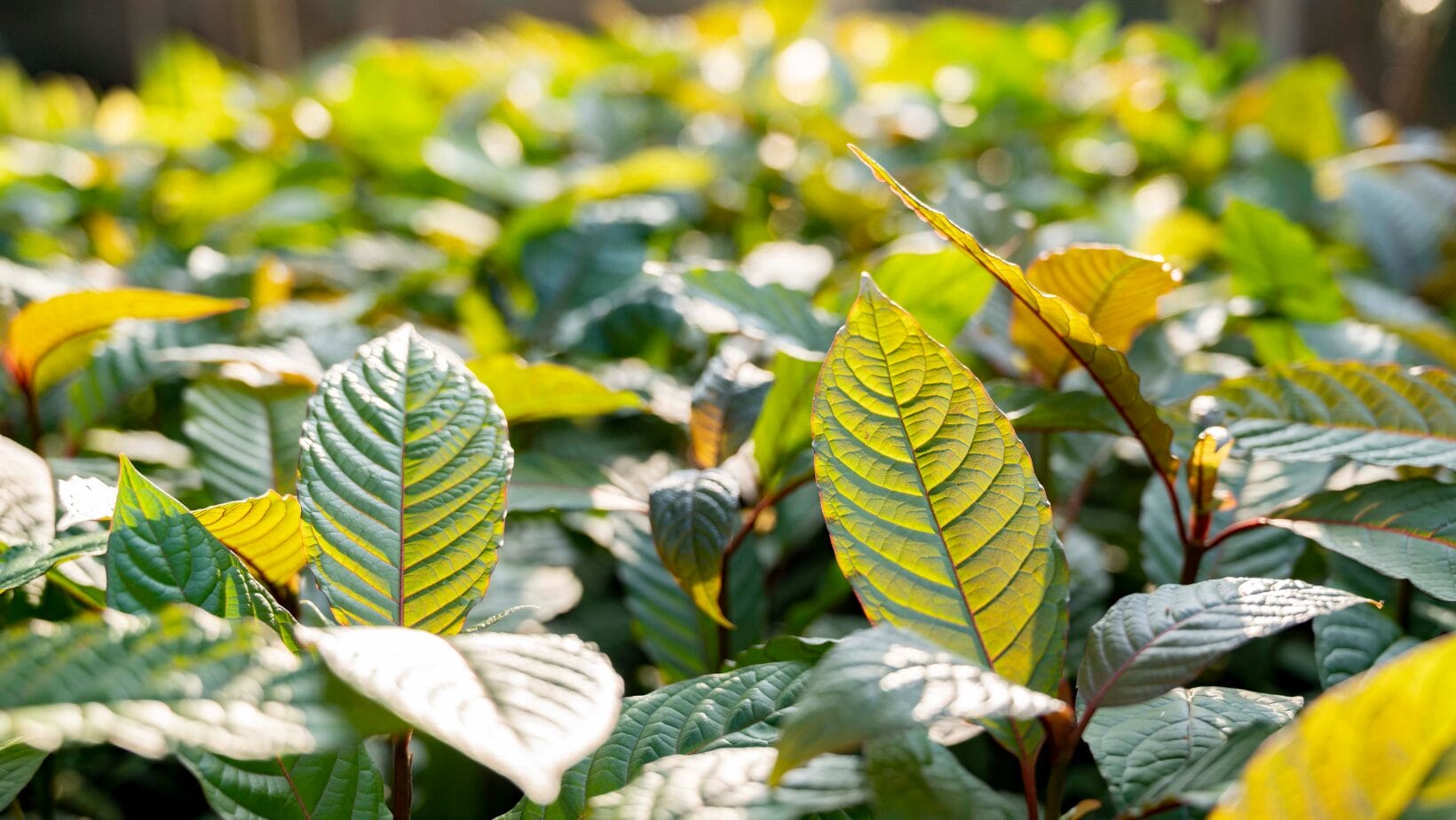
10 Best Ways Kratom Relieves Chronic Pain
Navigating the intriguing ways kratom’s alkaloids, anti-inflammatory properties, and mood-elevating

CBD and THC are two of the most well-known compounds found in the cannabis plant. While they share similarities, they also have distinct properties that set them apart. Understanding these differences is key to making informed decisions about using these compounds for health and wellness purposes.

CBD, or cannabidiol, is a naturally occurring compound found in the cannabis plant. Unlike THC, it does not produce the psychoactive effects typically associated with marijuana use. This means that CBD will not make you feel “high” or altered in any way.
However, CBD has been found to have therapeutic effects on the body. It has been studied for its potential benefits in reducing pain and inflammation, relieving anxiety and depression, improving sleep, and even as a possible complementary treatment for cancer.
| Potential Benefits of CBD |
|---|
| Reduces pain and inflammation |
| Relieves anxiety and depression |
| Improves sleep |
| Possible complementary treatment for cancer |
CBD can be consumed in a variety of ways, including through oils, capsules, edibles, and topical creams. When considering using CBD for any specific condition, it is important to consult with a healthcare professional to determine the appropriate dosage and method of consumption.

CBD oil is a concentrated form of CBD extracted from the cannabis plant. It is typically mixed with a carrier oil, such as coconut or hemp seed oil, to make it easier to consume. CBD oil can be taken orally, sublingually (under the tongue), or topically, depending on the desired effects.
While research on CBD is still ongoing, many people have reported positive results from using it as part of their wellness routine. However, it’s important to note that CBD is not a cure-all and should never be used as a substitute for medical treatment.

THC, or tetrahydrocannabinol, is a chemical compound found in the cannabis plant. It is the primary psychoactive component in the plant, responsible for the “high” associated with recreational use. THC is classified as a Schedule I drug in the United States, meaning it is considered to have a high potential for abuse and no accepted medical use.
Despite its legal status, there is a growing body of research suggesting that THC may have medical benefits. One of its most well-known uses is for pain management. THC has been shown to help reduce both acute and chronic pain, making it a potential alternative to traditional pain medications.
THC may also have benefits for those suffering from anxiety. While higher doses of THC can actually increase anxiety levels, lower doses may help to reduce anxiety and promote relaxation.
In addition, THC may have potential uses for sleep improvement. Studies have shown that it can help to reduce the amount of time it takes to fall asleep and improve overall sleep quality.
Finally, there is promising research suggesting that THC may have a role to play in cancer treatment. It has been shown to help reduce nausea and vomiting associated with chemotherapy, as well as potentially having direct antitumor effects.

While both CBD and THC have potential benefits for pain management, anxiety reduction, sleep improvement, and cancer treatment, they work in slightly different ways. THC is more effective at reducing acute pain, while CBD may be better suited for chronic pain. Similarly, while lower doses of THC may help to reduce anxiety, higher doses can actually increase anxiety levels, whereas CBD has been shown to have anxiolytic effects at all doses.
When it comes to sleep improvement, THC may be more effective at reducing the amount of time it takes to fall asleep, while CBD may be better suited for improving the overall quality of sleep. Finally, while both CBD and THC have potential uses in cancer treatment, THC may be more effective at reducing nausea and vomiting, while CBD may have stronger antitumor effects.
It’s important to note that the effects of both THC and CBD can vary depending on a number of factors, including dosage, method of consumption, and individual differences in metabolism. As with any medication or supplement, it’s important to consult with a healthcare professional before incorporating THC or CBD into your wellness routine.
While CBD and THC both come from the same cannabis plant, they have distinct differences in their chemical makeup and effects on the body.
One of the foremost differences between the two is that THC is psychoactive, meaning it can alter the mind and cause a “high” sensation. On the other hand, CBD is non-psychoactive and does not produce any mind-altering effects.
Another significant difference between the two is their legality. While THC is still considered a controlled substance in many states due to its psychoactive properties, CBD has been legalized by the federal government as long as it contains less than 0.3% THC.
Additionally, CBD is often marketed and used as a natural supplement for wellness purposes, whereas THC is primarily used for medicinal or recreational purposes.
When it comes to potential side effects, THC is more likely to cause temporary side effects such as dry mouth, increased heart rate, and impaired memory. CBD, on the other hand, is generally considered safe and well-tolerated, with few reported side effects.
In summary, while CBD and THC share some similarities as cannabinoids derived from the cannabis plant, their differences in chemical composition, effects on the body, and legal status make them distinct from each other.
CBD has become increasingly popular as a natural remedy for a variety of conditions. Many studies have shown that CBD may be effective in reducing pain, anxiety, and depression. It may also improve sleep and alleviate cancer-related symptoms.
CBD vs THC for Pain: Both CBD and THC have been studied for their potential to alleviate pain. CBD is believed to work by reducing inflammation and interacting with neurotransmitters. THC, on the other hand, works by activating cannabinoid receptors, which can reduce pain sensitivity. Studies have shown that both cannabinoids may be effective in reducing pain, with CBD having fewer side effects.
CBD vs THC for Anxiety: CBD has been shown to have potential anxiolytic effects, meaning it may reduce anxiety. It works by interacting with serotonin receptors in the brain, which regulate mood and social behavior. THC, on the other hand, may produce anxiety-inducing effects, especially in high doses. For this reason, CBD may be a better option for those looking for anxiety relief.
CBD vs THC for Sleep: CBD has been shown to improve sleep quality and reduce insomnia. It works by interacting with receptors in the brain that regulate the sleep-wake cycle. THC may also improve sleep, but it may also produce side effects such as grogginess and daytime drowsiness.
CBD vs THC for Cancer: Both CBD and THC have shown promise in reducing cancer-related symptoms such as nausea, vomiting, and pain. They may also have potential as complementary treatments to chemotherapy. However, more research is needed to fully understand their efficacy in cancer treatment.

Tetrahydrocannabinol, or THC, is a psychoactive compound found in the cannabis plant. Like CBD, THC has potential medical applications.
In terms of pain management, THC has been shown to be effective in treating chronic pain. It works by binding to the CB1 receptors in the brain and spinal cord, reducing pain signals. THC may also have an anti-inflammatory effect, further improving pain relief.
THC has also been found to be effective in reducing anxiety symptoms. However, it’s worth noting that in some cases, THC can actually increase anxiety, so it’s important to consult with a healthcare professional before using it for this purpose.
When it comes to sleep, THC may help improve sleep quality by reducing the time it takes to fall asleep and increasing total sleep time.
Finally, THC has been explored as a potential complimentary treatment for cancer. Studies have found that THC may be effective in reducing cancer-related pain and nausea associated with chemotherapy.
While CBD and THC may share some medical benefits, it’s important to note their differences and potential side effects. Consulting with a healthcare professional is always recommended before incorporating either compound into your wellness routine.

When it comes to pain relief, both CBD and THC have shown promising results. CBD, in particular, has been found to effectively manage pain caused by chronic conditions such as arthritis, multiple sclerosis, and neuropathic pain. It does this by interacting with the body’s endocannabinoid system, which plays a role in pain sensation and inflammation.
THC, on the other hand, is known for its psychoactive effects and is often used for pain management in cancer patients. It works by binding to the cannabinoid receptors in the brain and spinal cord, reducing pain signals to the brain.
While both compounds may offer pain relief, CBD is non-psychoactive and does not produce the ‘high’ associated with THC. Additionally, CBD has a better safety profile and is less likely to produce unwanted side effects such as dizziness, confusion, and memory impairment.
It’s important to note that further research is needed to fully understand the effectiveness of both compounds in pain management and how they can be used in combination with other treatments.
Overall, both CBD and THC have potential benefits for pain relief, but CBD may be a more suitable option for those who want to avoid psychoactive effects and any potential side effects associated with THC.

Although CBD and THC are both compounds found in cannabis plants, their legal status differs.
CBD is legal on a federal level in the United States, as long as it contains less than 0.3% THC. In December 2018, the Agriculture Improvement Act, also known as the Farm Bill, removed hemp and its derivatives from the list of controlled substances. This has led to the widespread availability of CBD products, including oils, capsules, and gummies.
On the other hand, THC is still considered a Schedule I drug under federal law, meaning it is illegal and has no accepted medical use. However, some states have legalized the use of medical marijuana and even recreational use in some cases.
It’s important to note that even in states where THC is legal, there are still restrictions and regulations surrounding its use. It’s essential to check local laws and regulations before purchasing or using any cannabis-related products.
While CBD is legal on a federal level, THC is still considered illegal in most states. This has a significant impact on the accessibility of these compounds and their potential benefits. CBD products are widely available, while THC is only available to those who live in states where it is legal.
However, it’s essential to remember that both compounds have potential benefits, and individuals should consult with a healthcare professional before incorporating them into their wellness routines.
While both CBD and THC offer potential benefits, it’s important to note that they can also come with side effects. These side effects may vary depending on the individual and the dosage used.
Some of the reported side effects of CBD include:
While these side effects are generally mild, it’s important to note that CBD can also interact with certain medications. As such, it’s recommended that you consult with a healthcare professional before using CBD.
THC can also come with side effects, particularly when used in high doses. Some of the reported side effects of THC include:
It’s worth noting that the psychoactive effects of THC may also make it unsuitable for some individuals, particularly those with a history of mental health conditions. As with CBD, it’s recommended that you consult with a healthcare professional before using THC.
While both CBD and THC offer potential benefits for overall wellness, it’s important to be aware of their potential side effects. As with any new supplement or medication, it’s recommended that you start with a low dose and gradually increase until you find the optimal dose for you.
CBD and THC share some similarities in terms of potential health benefits, but they also have distinct advantages.
One area where CBD shines is in its ability to reduce anxiety and promote relaxation without the psychoactive effects of THC. This makes it an excellent alternative for those who want to experience the benefits of cannabis without feeling “high.” THC, on the other hand, is known for its strong psychoactive effects and can provide a more euphoric experience when used in moderation.
Both CBD and THC have shown promise in managing pain and improving sleep. However, CBD may be the better choice for those with chronic pain, as it has been shown to provide long-term pain relief without the potential for addiction. THC can also be effective for pain management, but its psychoactive effects can make it more challenging to use during the day.
Another area where CBD and THC differ is in their potential use in cancer treatment. While both compounds have shown promise in reducing cancer-related symptoms such as nausea and pain, THC has also demonstrated potential as an anti-cancer agent. CBD, on the other hand, may enhance the effectiveness of traditional cancer treatments.
In summary, both CBD and THC offer potential health benefits, but their properties are quite different. CBD may be a better choice for those seeking relief from anxiety, chronic pain, and sleep issues, while THC can provide stronger pain relief and a more euphoric experience. Consult with a healthcare professional to determine which compound may be right for you.
In conclusion, understanding the differences between CBD and THC is crucial for anyone interested in incorporating these compounds into their wellness routine. While both CBD and THC offer potential benefits, they differ in many ways.
CBD is non-psychoactive and offers potential benefits in pain relief, anxiety reduction, and sleep improvement. It may also have a role in complementing cancer treatment. THC, on the other hand, is psychoactive and also offers potential benefits in pain relief, anxiety reduction, and sleep improvement. It may have a more direct role in cancer treatment.
When it comes to legality, CBD is legal at the federal level, while THC remains illegal. Both compounds have potential side effects, but overall, they have relatively safe profiles.
In comparing the benefits of CBD and THC, it’s clear that they offer some overlapping benefits, but each has unique advantages in promoting overall wellness.
Remember to consult with a healthcare professional before incorporating CBD or THC into your wellness routine. With the proper guidance, these compounds may offer a natural and effective way to support your wellbeing.
Overall, CBD and THC are fascinating compounds that continue to be studied for their potential benefits. As research expands, we can expect to learn even more about these fascinating compounds and their role in promoting health and wellness.
A: CBD (cannabidiol) and THC (tetrahydrocannabinol) are two of the most well-known compounds found in cannabis. While both come from the same plant, they have different effects. CBD is non-psychoactive and is generally used for its potential therapeutic benefits, such as pain relief and anxiety reduction. THC, on the other hand, is psychoactive and is responsible for the “high” associated with marijuana use.
A: CBD has been studied for its potential benefits in various areas, including pain management, anxiety reduction, and improved sleep. It may also have potential as a complementary treatment for certain conditions, such as cancer.
A: THC has been researched for its potential benefits in pain management, anxiety reduction, and improving sleep. It also shows promise as a complementary treatment for certain types of cancer.
A: CBD and THC differ in several ways. The most significant difference is that CBD is non-psychoactive, meaning it does not produce a “high” sensation, while THC is psychoactive and does produce a “high.” Additionally, CBD is legal in many places, while THC may have stricter legal regulations. CBD also has a wider range of potential medical uses compared to THC.
A: CBD is being researched for its potential medical uses, such as pain management, anxiety reduction, improved sleep, and as a complementary treatment for certain types of cancer.
A: THC is being studied for its potential medical uses, including pain management, anxiety reduction, improved sleep, and its role in cancer treatment.
A: Both CBD and THC have shown potential in providing pain relief. CBD may work by reducing inflammation, while THC may directly interact with pain receptors in the body. It’s important to note that individual experiences may vary, and consulting with a healthcare professional is recommended.
A: The legal status of CBD and THC varies depending on the jurisdiction. CBD derived from hemp is legal in many places, while THC is often subject to stricter regulations due to its psychoactive properties. It’s important to understand the laws in your specific location.
A: CBD and THC can both have potential side effects. Common side effects may include dizziness, dry mouth, and changes in appetite. It’s essential to start with a low dose and monitor your body’s reaction. Consult with a healthcare professional for personalized guidance.
A: CBD and THC have overlapping benefits, such as pain relief and anxiety reduction. However, they also have unique advantages. CBD is non-psychoactive and may be more suitable for those seeking therapeutic benefits without the “high” sensation. THC, on the other hand, may be more effective for certain conditions that require a psychoactive component. Overall, the best choice depends on individual needs and preferences.
A: Before incorporating CBD or THC into your wellness routine, it’s important to consult with a healthcare professional. They can provide guidance based on your specific circumstances and help you navigate any legal considerations.

Navigating the intriguing ways kratom’s alkaloids, anti-inflammatory properties, and mood-elevating

Derived from the leaves of the Mitragyna speciosa tree, native

Safe Secure Ordering
1934 Sheridan Avenue
Cody, Wyoming 82414
(307) 586-5420
Capitol Botanicals
424 W 3rd Street
Powell Wyoming 82435
We do not claim to have any medical expertise. Our personal experiences and the experiences of our happy customers are what we base our opinions on.
These statements have not been evaluated by the FDA and are not intended to diagnose, treat or cure any disease. Always check with your physician before starting a new dietary supplement program. For our full FDA disclaimer, please click HERE.
Kratom is banned in the following areas: Alabama; Arkansas; Indiana; Rhode Island; Vermont; Wisconsin; Sarasota County; Union County; Malheur County; Denver, CO; San Diego, CA; City of Oceanside, CA; Jerseyville, IL; Alton, IL; and several counties in MS. We do not ship internationally.

By signing up you agree to receive email marketing from Capitol Botanicals.